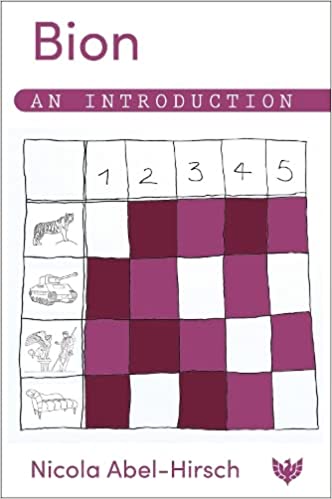Bion: 365 Quotes

Book Details
- Publisher : Routledge
- Published : February 2019
- Cover : Paperback
- Pages : 592
- Category :
Psychoanalysis - Catalogue No : 40152
- ISBN 13 : 9781782205869
- ISBN 10 : 1782205861
Our Customers Average Rating
Read all reviews (2)





This is a book of 365 quotes from the work of the psychoanalyst Wilfred Bion. Something of an enigma, Bion often doesn’t write in the way one would expect of a psychoanalyst, but is being read ever increasingly around the world, in and outside the psychoanalytic community. Certain comments are often quoted, whilst swathes of his work lie almost untouched. How to make some of the detail of this work available? What he writes is often dense in the way the structure of a poem can be, and the book has the format of a ‘poem a day’ collection - providing a way into his complete work a quote at a time. Along with commentaries by Abel-Hirsch are thoughts on Bion’s work drawn from papers by other analysts from the UK, the Americas, and Europe.
The book is structured in a way that it is hoped will inform and interest the general reader as well as giving something new to psychoanalyts and others who already know his work well. There are two indexes, a detailed conventional one and an index of first (or key) lines.
Beginning with Bion’s autobiography The Long Weekend, the book includes quotes from the best known seminal papers of the 1950s (including his 'Theory of Thinking'); the increasingly unexpected content of the four books that followed; the International Seminars, and his novel A Memoir of the Future (in which we see him relating to the turbulence his work had stirred in earlier years, and talking ‘at the end of the day’ still with a genius for observing human beings and how they can change - or not). Bion’s more ‘relaxed’ writings (personal notes, letters and the novel) throw light on the more condensed comments in his books, and where appropriate the two have been put together.
About the Author(s)
Nicola Abel-Hirsch is a training analyst of the British Psychoanalytical Society, and works in full-time psychoanalytical practice. She has given theoretical and clinical papers on Bion in the UK; Taiwan (annually 2005–2012); the USA; and Europe. From 2013 to 2015 she was the visiting professor at the Centre for Psychoanalytic Studies, University of Essex. She is the author of Bion: 365 Quotes (2019), and editor of Hanna Segal’s last book Yesterday, Today and Tomorrow (2007). Under the auspices of Understanding Primitive Mental States NYC, she chairs an ongoing series of seminars on Bion’s later lectures, seminars and supervisions.
Customer Reviews
Our customers have given this title an average rating of 5 out of 5 from 2 review(s), add your own review for this title.
Chris Mawson on 04/02/2019 11:44:04




 (5 out of 5)
(5 out of 5)
One of the quotations in this book indicates the distinction between writing a book and making one. This is a well made work-book to which the reader interested in Bion’s thinking can return to again and again, not in a linear and category-bound manner but instead searching, like the title of the lost 1963 album of jazz musician Coltrane, creates the potential for reading ‘from both directions at once’, and so it is very definitely not simply a compilation of interesting quotations from an influential thinker. In some ways it is like an extension to Bion’s posthumously published book ‘Cogitations’, but with added, cross-referenced and highly informative commentaries. I feel sure that it will introduce to all its readers, as it did to me, fresh perspectives on his work, as well as new information, however much has already been gleaned. It will renew interest in the autobiographical writings, which are on the whole more reliable than existing biographical works, and it may spark a renewed interest in his allusive three volume novel, The Memoir of the Future. I recommend it highly to all those seeking fertile questions in psychoanalysis.
Bob Hinshelwood on 03/02/2019 17:48:10




 (5 out of 5)
(5 out of 5)
This is an extraordinary book, 365 quotes from Bion's writings. It is not a very familiar format. Mostly academic and clinical writing makes a case for a particular point or view and a conclusion. And then quotations from other sources are used to strengthen or illustrate that argument. But here it is the other way around, the quotations are the groundwork from which important conclusions are then drawn.
One could say it is therefore something of an inside-out book. But, in fact I might say it is more like the clinical method itself, rather than clinical writing. In clinical work we take significant statements – dreams, certain free associations, etc – and draw out conclusions for our patients. Just as we might see Nicola drawing out significant thoughts and issues from these moments of clarity in Bion's opus.










